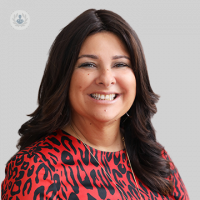Why is autism spectrum disorder often missed in young girls?
Autore:
Autism spectrum disorder is often falsely believed only to affect males. In this article, leading cognitive neuropsychologist Dr Debora Elijah offers expert insight into how the disorder can also affect girls and explains why their diagnosis is often missed. She also outlines the benefits that consulting a specialist can bring for young people with an autism spectrum disorder diagnosis.

What characteristics do people with autism spectrum disorder typically have? Does this differ between girls and boys?
Girls tend to be diagnosed later in life compared to boys. Girls are usually underdiagnosed, as parents, teachers and doctors tend to think that autism spectrum disorder, or ASD, is more prevalent in boys.
Autism may also look different in girls. They may have, for example, fewer restricted interests and repetitive behaviours.
Characteristics typically associated with a person with ASD are:
- Not responding when called by name
- Avoiding eye contact
- Not returning a smile
- Getting very upset by certain tastes, smells, or sounds that they dislike
- Repetitive movements (such as flapping hands, flicking their fingers or rocking their body)
- Not talking as much as other children
What can autism spectrum disorder be mistaken for?
Autism spectrum disorder can be mistaken for schizophrenia, social anxiety, anorexia, depression and OCD.
Is autism spectrum disorder genetic?
ASD can be genetic. Girls with autism tend to have more mutations than boys with the condition. Boys with autism seem to inherit their mutations from unaffected mothers more often than from unaffected fathers.
Are there any factors that make ASD diagnosis in girls more complex?
Diagnosis in girls are more complex as they usually “mask”. The cost of missed diagnosis in people we call mildly autistic usually comes in the form of adolescent social problems or becoming hyperfocused on a topic and not participating in school to their full potential or ability.
In my own practice at the Elijah Centre, we have seen girls with depression, anxiety and body dysmorphia due to not having been diagnosed earlier with ASD.
What benefits can consulting a specialist have for people with ASD?
PROSCIG intervention, an approach I created, tailors a programme according to the needs of the child, especially in females who haven’t previously received their diagnosis. Intervention helps the child to reduce social anxiety and to have a more meaningful life and relationships.
The PROSCIG programme gives the children tools to cope with daily life, such as preventing bullying and supporting them with mental health challenges. With children at the Elijah Centre, we see that intervention increases their self-esteem and gives them the confidence to deal with different challenges by working not just with the child, but also their parents and school.
If you think your child would benefit from a consultation with Dr Debora Elijah, you can make a booking by visiting her Top Doctor’s profile.


